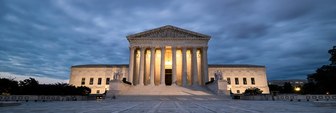Americans are more pessimistic about their own country's economy and democracy than they are about those in Europe and the UK, according to recent polling by the Economist and YouGov. At the same time, Americans feel the United States' economic and political systems are better off than the world as a whole, as well as superior to those in Russia or Iran. Compared to Democrats, Republicans have bleaker assessments of other countries'' economies and democracies. The one exception is Russia, which Democrats are more likely to see as struggling economically.
Comparing economies
The United Kingdom's economy remains in turmoil this week as the country struggles with double-digit inflation and high energy costs. Americans, however, haven't taken much notice, with twice as many describing the state of the U.S. economy as "poor" (32%) compared to that of the UK (16%). Pessimistic views of the U.S. economy come at a time when 59% of Americans believe the country is already in a recession, and another one in five expect one in the upcoming year.
After initially announcing a series of tax cuts, UK Prime Minister Liz Truss backtracked on her decision earlier this week amid backlash and calls for her resignation. Truss remains mostly unknown to Americans, and gets relatively mixed evaluations from people who are familiar with her (18% view her favorably, 17% unfavorably). Her ratings are buoyed by a more positive assessment from Republicans (not unusual for a Conservative Prime Minister).
Many see the economic situation in the UK as similar to that of Europe overall, which twice as many describe as "poor" or "fair" (25%) relative to "excellent" or "good" (50%). China's economy is also rated similarly to the UK's, with more describing it as excellent or good (28%) than fair or poor (43%). The economic situation of two other countries polled – Russia and Iran – is perceived as particularly dire, with only around one in 10 Americans describing each country's economy as excellent or good, and more than half describing each as fair or poor.
Compared to Democrats, Republicans have a more pessimistic perception of the economy in most places polled. The largest gap between party members is in evaluations of the U.S. economy – 47% of Republicans describe it as "poor" compared to 19% of Democrats. Republicans also hold a more negative view of the world's economy: 33% describe it as "poor" compared to 17% of Democrats. Only one country is described as having a poor economy by a larger share of Democrats than Republicans; 51% of Democrats describe Russia's economy as poor relative to 43% of Republicans.
Comparing democracies
Americans' assessments of the state of democracy in the U.S. are rather bleak, with only 35% describing the situation as "excellent" or "good" and 70% describing it as either "poor" or "fair." This view is shared by both Republicans and Democrats, one of the few areas of bipartisan agreement in this poll. Majorities in both parties say the state of American democracy is “fair” or "poor."
Americans have a somewhat more optimistic perspective on European democracies, including the UK: only 8% describe the UK's democracy as "poor" compared to 22% who describe the U.S.' as such. When it comes to the world as a whole, however, Americans believe that democracy fares even worse than it does in the U.S. More than one in four (28%) describe the state of democracy globally as “poor,” and an additional 42% describe it as "fair." The state of democracy in the three other countries asked about – China, Russia, and Iran – is described as "poor" by majorities of Americans.
Both Republicans (72%) and Democrats (71%) agree that the state of democracy in Russia is poor. In their evaluations of the democratic strength of all other places polled, Republicans are more likely than Democrats to hold a negative view. The largest gap between party members is in their evaluation of democracy across the world: 35% of Republicans describe it as poor, relative to 20% of Democrats.
– Carl Bialik and Linley Sanders contributed to this article
This poll was conducted on October 1 - 4, 2022 among 1,500 U.S. adult citizens. Explore more on the methodology and data for this Economist/YouGov poll.
Image: Adobe Stock (Sergey Ryzhov)















